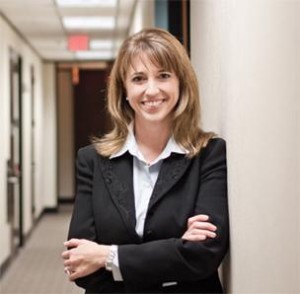Podcast: Play in new window | Download
 Please see Part I with Wendy Kowalik, on fees, and Part II with Wendy Kowalik, on Insurance and Getting Rich Slowly
Please see Part I with Wendy Kowalik, on fees, and Part II with Wendy Kowalik, on Insurance and Getting Rich Slowly
Michael: Hi, my name is Michael and I used to be a banker.
Wendy: Hi, Michael. My name is Wendy Kowalik, I founded Predico Partners. We’re a financial consulting firm.
On Happiness
Michael: In your experience you’re dealing with both high net-worth folks and very moderate net-worth folks.
Tell me about are the rich really different from you and me? I mean specifically this idea of happiness. I think we know from popular culture, probably, that money doesn’t buy happiness. But I wondered in your experience are people different on the happiness scale if you have 10 or 50-million net worth?
Wendy: I don’t think that money buys happiness. What I’ve seen over the years of doing this is a lot of times it brings more complications that they weren’t expecting, especially when it shows up quickly. Then it’s a struggle between how much do you help your children, how much do you help family, how much do you help others versus how much do they need to survive. It brings into a lot of families struggles that they weren’t expecting, just from “where do I draw the line.”
The number-one thing people are concerned about is “I don’t want my children to feel entitled.” How do I make sure they understand the value of the dollar? How do I make sure that they’re going to be a benefit to society and really do something — not be everything you see on social media on trust-fund children? That’s a real struggle that people always say if I had money I wouldn’t worry about. But your children, you’re going to worry about whether you have money or don’t.
Michael: I differentiate in my life people I meet between — I have my prejudices, and one of them is – people who’ve made the money in their lifetime and people who simply inherited it. It’s perhaps an unfair divide, but it’s a quite American democratic divide that I make. Other people do this as well.
Do you find people who’ve made the money have a totally different perspective on the money than the people who have simply inherited the money?
Wendy: Absolutely, at the end of the day the people who have made the money have normally done it through struggles, especially if they’re business owners or they’ve earned it over time. They’ve had failures. The people who are second generation many times have not had the failures. They’ve just seen it as life is good. They’ve seen the cash coming in, and especially third generation, because they’ve never not had the money. Sometimes with first generation, because they didn’t have it early on, the kids maybe didn’t grow up the same way. But it is a very different situation when you’ve never failed, either in business or in money. That’s one of the greatest obstacles is how do you let kids fail when you have the opportunity to bail them out.

Michael: The deep mixture of psychology and money, which I also think is pretty interesting, fertile ground for discussion. My site, Bankers Anonymous is really all about me coming to terms with my business failure in a sense, and then being like “let’s talk openly about money” and maybe a bit of the psychology of money, and a focus on investing and that kind of thing, but also globally with a lot of other things. There’s an element where there’s a personal project.
I’m deeply interested in that topic, of people experiencing failure around that or experiencing deep psychological discomfort around that. I’m not sure this will make the cut of the podcast but for me that’s a really interesting set of topics.
On Role of Psychology in Investing
Michael: One of them relates to the role of the investment advisor, and I use a couple of phrases when I talk to my friends and acquaintances about money and managing money, and investment advisory advice. One of them is the role of an investment advisor is really deeply a psychological role. It’s to hold your hand at certain moments. I have recently written on one of my posts that probably the most important role is to hold the hand of the client when the market pukes, and then go “Don’t sell. This isn’t the moment to sell.” It’s a very deeply — has very little to do with market knowledge and everything to do with holding the hand of the person, and saying: “Remember, we talked about this, and I know you’re freaking out, but it’s a deeply psychological time. Just trust me, don’t sell.” Do you find yourself doing some version of hand holding or really being the psychological coach to your clients?
Wendy: It is absolutely probably one of the keys to psychology to this business. If you think about it, you’re asking people on a daily basis to do what is completely opposite of what they know and feel.
The best was in the ’90s. We had a client’s son called. He’d been in the 401(k) for about five years at that point. He called and said, “I need your help. We have to figure this out. I’m in a 401(k) and those accounts don’t go down. I need you to figure out what’s wrong, what did my company do, how did they mess this account up?” He’s been in the stock market in that period of time where it had never lost money. He really believed that it just completely kept going. If you put money in, this stuff went up. Not like everything else outside your 401(k).
Michael: Some magical pixie dust of your 401(k) that just made it go up. One of my mentors on Wall Street [famously] said to me as an aside, but I never forgot it. He said, “I love this job. It’s 5% bond math and 95% child psychology.” It’s true for Wall Street sales and true for I think investment advisory.
There’s an investment advisor I don’t know personally but I read his stuff. I’m on his newsletter that I mentioned to you in the past, David Hultstrom, who said, “Investment advisors make the mistake of thinking their job is to increase their client’s money or increase the size of the portfolio. But really, they increase the client’s happiness.” If you see it that way you have a totally different possibly set of ways in which you approach the client. Forget about making the money or increasing the portfolio. Make them happy. It seems like a wise, profound thing to say.
Wendy: It’s a very true statement.
Gender in Finance
Michael: What about being a woman in finance? On Wall Street there were plenty of women on the trading floor. On the other hand, they weren’t generally my bosses nor were they running the firms. There’s a glass ceiling there in those types of jobs. When you’re running your own company you’re running your own company, but do you find it is different for a woman than a man, still?
Wendy: It’s interesting. There’s definitely much fewer women. If you look at the insurance industry they’re almost non-existent in the insurance business. There’s definitely many more in the investment side of the business than there are in insurance. It is a difference in the way that women and men go about how they make decisions and how they talk to clients about things.
It’s been interesting to talk to clients over time about the differences in the way that women and men approach money and approach topics of money. It’s a fascinating difference as you sit across the table.
Michael: Is it harder, easier, better, worse?
Wendy: I don’t think it’s harder. I think it’s definitely different. I’m more question oriented so I have to dive down into details to get the ultimate facts. I can’t come to you and just talk off the top of my head if I don’t know it to be true, whereas I’ve found most of the men in the business are very comfortable that once they have a high level of knowledge they were ready to go forward with it. They dive down into the details after they got down the road. It was just that sense of confidence of knowing that I had all the answers first. There’s a good happy medium.
Michael: Men are better at bluffing their way to begin with?
Wendy: True, yes, they’ll jump out there sooner. The good side of it is they’ll move faster than most women will. The downside is maybe they don’t have all the facts to move faster. Those are complete generalities because I work with men and women on both sides of the table. I think after 20 years in the business all of us learn to adapt. I’ve learned to be willing to move forward without having to have every single piece to the puzzle. But I think you have men that sometimes need to slow down and probably not shoot from the hip.
Michael: Last week, a quick story about my nine-year-old daughter, she was selected to be the traffic patrol kid with a team of a dozen patrols. They get there early and stay late as kids come into school and cross the street. They put up and down the flag and fold it. So one of the honorary things is putting up and down the flag. The other day she and another boy, Shawn, were selected to be captains. It’s a great honor. Of the dozen or so in her cohort, Shawn and she are going to be captains. She said, “They’re going to teach me how to do the flag. Of course, Shawn’s already been taught the flag.” And my wife and I said why is that. She said, “Well, he just acts like a captain already so he just kind of hangs out there, and they taught him how to do the flag.”

Wendy: That’s a perfect example.
Michael: I thought holy cow, that is life right there. The boy just kind of hangs out, I’m kind of a captain type, and they taught him. She’s a rule-following kind of cautious kid, so she’s going to wait until somebody invites her to be taught. I was just floored and thought that’s it in a nutshell.
Wendy: That nailed it.
Michael: I don’t know what we’re going to do. But it’s super typical. She just needs to know that sometimes you’ve got to fake it, hang out, and get taught how to put the flag up.
Wendy: That’s right.
Michael: but let’s end this call now. Then let’s keep talking. Thanks so much.
Wendy: Take care, bye.
Michael: Bye.
Please see related posts:
Do You Need An Investment Advisor – Why?
Talking to Children about Money – I still need to read Ron Lieber’s book
Book Review: Why Smart People Make Big Money Mistakes, by Gary Belsky and Thomas Gilovich
Post read (677) times.




